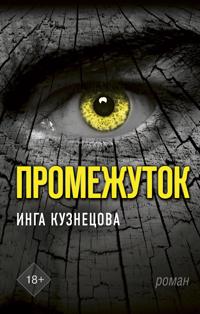“When is Russian literature not Russian literature?” is the latest post in our blog series from translators currently commissioned by RusTrans. In this series, translators reflect on current issues in translation practice and/or the translations they work on. Here, Shelley Fairweather-Vega discusses her practice of translating Central Asian women’s writing.
“The Russian kids in their neighborhood didn’t want to let her into their games. ‘Kalbitka, kalbitka!’ they screamed at her. She didn’t take offense because she didn’t understand.”
-from “Black Snow of December,” by Asel Omar
As a translator of both Russian and Uzbek, I often find myself stuck between two worlds, eerily similar but also irreconcilably different. Throughout my career so far, only half of the fiction I’ve translated has actually been Russian, in the sense of having being written by people who identify as ethnic Russians and live in Russia itself. Only perhaps 75% of it is even in the Russian language before I get to it. My project for RusTRANS is two stories from a future anthology of short stories by Kazakh women. One of the authors I’ve translated for this project has the quite Russian-sounding name Nadezhda Chernova, while the other, Asel Omar, sounds not at all Russian. To remove all doubt about her national origins, Omar no longer uses the -ova ending that was tacked on to virtually all Central Asian surnames (-ov for men) during Soviet times to make citizens there sound more Russian. Half the stories in the anthology, including these two, were originally written in Russian. The other half were written in Kazakh. So are they Russian literature?
My first instinct is always to say “no.” The Central Asian writers I work with don’t see themselves as the heirs of Pushkin and Tolstoy, though many have studied their work thoroughly. They’re more likely to actually be descended from people cruelly persecuted by the devoted fans of Russian literature’s biggest stars. They may share a language, but that language was thrust upon them by colonial powers; thematically, they have a different cultural heritage to hearken back to, different epic heroes, different myths, religions, values, and histories. And as a translator of Central Asian literature, I take offense on behalf of the whole huge, diverse region when readers see Uzbek or Kazakh literature as a special, minor, exotic branch of Russian literature. Sadly, that happens surprisingly often – more than is seemly for people educated in a Western tradition, supposedly forewarned against the temptations of Orientalism and hip to post-colonial thinking.
The Uzbek writer in exile Hamid Ismailov has gone so far as to posit that everyone is looking at the issue the wrong way round: it’s not that Uzbek literature is a wild backwater of Russian literature; rather, Russian literature owes its whole existence to Central Asian literature. Ismailov’s alter-ego protagonist in Of Strangers and Bees comes up with this theory on the fly, when he’s asked to give a lecture on Russian literature to a European audience and finds himself completely unprepared, improvising as follows:
“Russian literature is a vast ocean. But even an ocean is measured by its shorelines. It starts from its shorelines. If it has no shorelines, it does not exist itself. What gives an ocean its shape is its shorelines. […] Take Dostoyevsky’s five novels. They are essentially nothing other than the Hamsa written over again. But all that is another story,” I declared […] By the time I was done, things had developed in such a direction that I was not, in fact, the student of Bunin and Akhmatova; no, historically speaking, they were students of my national literature.
I’m not sure I would go that far in describing the two Kazakh stories I translated for RusTRANS. Both were written originally and solely in Russian, for one thing (even the word “kalbitka,” in the citation above, was an insult of vague and undocumented origins used by Russians to belittle the locals, so it’s a Russian word, too). Every Central Asian writer my age or older was raised and educated mostly in the Soviet system, with its strictly uniform curriculum across republics and institutions. That means fiction from the region can bear a strong resemblance to fiction from Russia proper (as does Russophone writing from places as diverse as Ukraine, Latvia, Brooklyn and Israel). But the more Uzbek and Kazakh and Tajik writing I translate, the more ideas and viewpoints I discover that are not Russian at all.
Chernova’s story, “Aslan’s Bride,” is a story about a girl with a Russian nickname, Milochka, who yearns for love. After a short and ugly relationship with a Russian drunk, she decides to leave town. Milochka travels to the ends of the earth and finds herself in a village by the sea, full of women dressed in black who do not speak her language. Though we are never told where she is or what language people speak there, we understand that the place she left behind is a standard-issue mid-1970s Soviet city, and this new place is very different. Milochka is taken in by an old woman who wants to betroth her to her handsome son – who left for the war thirty years ago and still has not returned. Our heroine agrees, and finally finds her place in the world. So here we have a protagonist leaving Russia, or a place standing in for Russia; learning a new language; and becoming family with a people still devastated, thirty years later, by Soviet involvement in World War II. This is completely unlike any Russian story I’ve read about the Great Patriotic War.
Omar’s story, “Black Snow of December,” centers on a young man named Rustem, a journalist who is an ethnic Kazakh, remembering a neglected moment in Kazakhstan’s history: three days of protests, violence and arrests precipitated by personnel changes in the Communist Party in December 1986, known to people who remember it simply as Jeltoqsan, “December.” Rustem recalls the fear and anxiety his Kazakh family suffered during those events and the varying reactions of their Russian, Jewish, and Korean friends and neighbors. He also ponders his own family’s history: his “pre-revolutionary” grandfather was made an orphan by the Bolsheviks, and went on to work as a Soviet spy, while secretly memorizing the work of dissident Russian and Kazakh poets. Russian writers also portray the ambiguities of the Soviet system and ordinary people’s ways of coping with it – though they usually make those ordinary people Russian, sometimes Jewish for a twist. But would a typical Russian writer have Rustem fired from his newspaper job, years later in independent Kazakhstan, for writing about this sensitive period in the country’s history – and walk away happily through a numbingly cold night, focused on the future? I’m not sure.
One thing these very different stories have in common is that they center the experiences of people that “real” Russian literature keeps on the periphery, on Ismailov’s “shorelines.” They allow Central Asian characters to be genuine, ordinary people, not merely exotic foreign types. The somber women in black, not the flighty Milochka, are the characters who are most at home in “Aslan’s Bride.” The Kazakh population of Almaty are the ones being asked not to speak their own language to avoid offending anyone in “Black Snow.” When I read and translate these stories, I see decolonization at work. Russian and Russianness is a fact of life and ever-present, but it’s not the crux of the story. In this literature, the Russians don’t have to be the storytellers. The Russians don’t have to be the ones teaching us what Russian literature can be, even when their language is wielded to write it.
If these Russian-language stories are so non-Russian, then where do I get off applying for a program like RusTRANS? Why do I lurk on Russian translation listservs and Facebook groups? The purely practical answer is that there is no KazTRANS or UzbTRANS program, no Kazakh or Uzbek translation listservs. There are simply not enough of us translators from Central Asian languages (yet), and not enough interest (yet) in this new type of Central Asian literature, and without my Russian translation comrades, I’d be very lonely at conferences. For this type of literature, there are no awards to follow. There are no fellowships to fight over and almost no institutional support, and what does exist comes from a source that makes me squeamish: the Kazakh and Uzbek political machines. So as long as I’m translating from Russian, I plan to keep boldly trying to have it both ways, and doing everything I can to attract the attention of Russian literature lovers to non-Russian Russian literature.
Shelley Fairweather-Vega
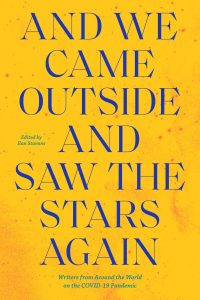 My translations of quarantine poetry from Kazakhstan were accepted in record time, by two journals in the space of a weekend. So along with the general distress of knowing the world is falling apart around us, there has been this sense of urgency, that this is a time to work faster, more seriously – at least on topics related to the plague. Is it due to the fear that the virus could wipe us all out any day now, the sense that we have to get done as much as possible before we’re inevitably debilitated by illness or, for instance, the people who keep the internet running stop showing up for work? Or is it the perverse fear that the virus could disappear, cease being an issue, that readers could lose interest in everything being written (and translated) about it? How strange it feels to take advantage of a global calamity this way, to translate straight through the crisis, about the crisis, hoping desperately to finish your work and get it out in the world before it’s no longer relevant – while all the while also wishing desperately for the opposite, for the whole mess to disappear and for life to get back to normal, so that nobody will ever need to think, write, or translate about COVID-19 ever again. As far as I remember, there are plenty of other things to write about. Aren’t there?” – Shelley Fairweather-Vega (translator from Russian and Uzbek)
My translations of quarantine poetry from Kazakhstan were accepted in record time, by two journals in the space of a weekend. So along with the general distress of knowing the world is falling apart around us, there has been this sense of urgency, that this is a time to work faster, more seriously – at least on topics related to the plague. Is it due to the fear that the virus could wipe us all out any day now, the sense that we have to get done as much as possible before we’re inevitably debilitated by illness or, for instance, the people who keep the internet running stop showing up for work? Or is it the perverse fear that the virus could disappear, cease being an issue, that readers could lose interest in everything being written (and translated) about it? How strange it feels to take advantage of a global calamity this way, to translate straight through the crisis, about the crisis, hoping desperately to finish your work and get it out in the world before it’s no longer relevant – while all the while also wishing desperately for the opposite, for the whole mess to disappear and for life to get back to normal, so that nobody will ever need to think, write, or translate about COVID-19 ever again. As far as I remember, there are plenty of other things to write about. Aren’t there?” – Shelley Fairweather-Vega (translator from Russian and Uzbek)

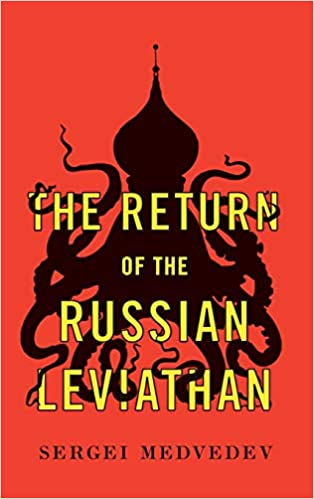
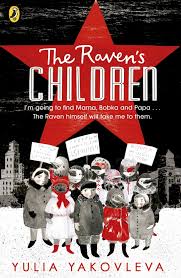 Happily my publisher was able to extend the deadline for this book as there was no way I could have finished by the end of July as planned. I’ll be working on it until mid-September now, when I’m due to be starting a German nonfiction book. Every day that I’ve struggled to meet my daily translation target I have wondered whether I shouldn’t have asked for a longer extension, but I wanted to avoid further delay on the German book. I lost around £2000 worth of adjunct projects including teaching on the Warwick Translates literary translation summer school, a talk about children’s literature in translation scheduled for the ITI & Friends festival, and a translation slam at London Book Fair. I also had to cancel a weekly part-time teaching commitment because I didn’t think I could cope with teaching online alongside my ongoing translation work. But part of me was relieved when the events were cancelled as it was around March that I realised how much I had over-committed this year. I was eligible for a grant via the Self-Employment Income Support Scheme, and by coincidence it was very close to the amount I had lost due to cancelled projects. This has been a testing time but in many ways it has felt like going back a few years to when I was translating challenging books in challenging circumstances with toddlers and babies and not enough sleep. At least during the lockdown I’ve mostly had better sleep, although strangely since the lockdown has partially lifted I have struggled more with anxiety and insomnia. I think the initial weeks of lockdown were such a retreat from the normal rush that I was finally able to shut off the world and recuperate after a stressful winter. Now I have just as little time to work but need to translate five pages a day compared to the three a day I was managing at the start of lockdown; unsurprisingly, anxiety about the approaching deadline is starting to creep in. But as with every project I have found that I’ve sped up as I’ve got into the book, so fingers crossed I’ll get there in time for about a week off in between the first draft and the edits.” – Ruth Ahmedzai Kemp (translator from Russian, German, and Arabic and co-founder of
Happily my publisher was able to extend the deadline for this book as there was no way I could have finished by the end of July as planned. I’ll be working on it until mid-September now, when I’m due to be starting a German nonfiction book. Every day that I’ve struggled to meet my daily translation target I have wondered whether I shouldn’t have asked for a longer extension, but I wanted to avoid further delay on the German book. I lost around £2000 worth of adjunct projects including teaching on the Warwick Translates literary translation summer school, a talk about children’s literature in translation scheduled for the ITI & Friends festival, and a translation slam at London Book Fair. I also had to cancel a weekly part-time teaching commitment because I didn’t think I could cope with teaching online alongside my ongoing translation work. But part of me was relieved when the events were cancelled as it was around March that I realised how much I had over-committed this year. I was eligible for a grant via the Self-Employment Income Support Scheme, and by coincidence it was very close to the amount I had lost due to cancelled projects. This has been a testing time but in many ways it has felt like going back a few years to when I was translating challenging books in challenging circumstances with toddlers and babies and not enough sleep. At least during the lockdown I’ve mostly had better sleep, although strangely since the lockdown has partially lifted I have struggled more with anxiety and insomnia. I think the initial weeks of lockdown were such a retreat from the normal rush that I was finally able to shut off the world and recuperate after a stressful winter. Now I have just as little time to work but need to translate five pages a day compared to the three a day I was managing at the start of lockdown; unsurprisingly, anxiety about the approaching deadline is starting to creep in. But as with every project I have found that I’ve sped up as I’ve got into the book, so fingers crossed I’ll get there in time for about a week off in between the first draft and the edits.” – Ruth Ahmedzai Kemp (translator from Russian, German, and Arabic and co-founder of 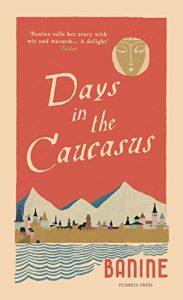
 In the very last interview of our blog mini-series, RusTrans speaks to Will Evans, an award-winning publisher, writer, translator, bookstore owner, and literary arts advocate. He is the founder and executive director of
In the very last interview of our blog mini-series, RusTrans speaks to Will Evans, an award-winning publisher, writer, translator, bookstore owner, and literary arts advocate. He is the founder and executive director of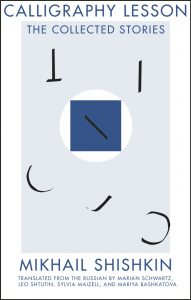 Now that’s a familiar feeling! What do you think will be the knock-on effect from lockdown on translation publishing? Are there advantages as well as disadvantages for people in the creative industry?
Now that’s a familiar feeling! What do you think will be the knock-on effect from lockdown on translation publishing? Are there advantages as well as disadvantages for people in the creative industry?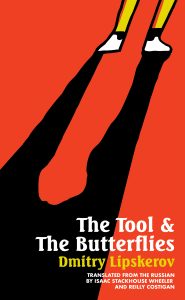 It’s great. And we’re finalizing details to publish our third book by Alisa Ganieva, a writer and person I admire to the absolute highest, with her most socially engaged, political novel yet (which is saying something!), Offended Sensibilities. How can readers forget about Russian literature when this much good stuff is coming out? And between what little we at Deep Vellum are doing, we look around and eternally admire the great Russian books coming from Columbia University Press, Pushkin Press, Oneworld, and New York Review Books and just smile at the rich diversity of Russian writers whom the independent publishing world is providing for readers. But, of course, that means we all have more to do to find the broad readership each author deserves for posterity.
It’s great. And we’re finalizing details to publish our third book by Alisa Ganieva, a writer and person I admire to the absolute highest, with her most socially engaged, political novel yet (which is saying something!), Offended Sensibilities. How can readers forget about Russian literature when this much good stuff is coming out? And between what little we at Deep Vellum are doing, we look around and eternally admire the great Russian books coming from Columbia University Press, Pushkin Press, Oneworld, and New York Review Books and just smile at the rich diversity of Russian writers whom the independent publishing world is providing for readers. But, of course, that means we all have more to do to find the broad readership each author deserves for posterity. WE: I’d be surprised if Lisa Hayden’s translation of Guzel Yakhina’s Zuleikha isn’t nominated, but I’d be shocked if Marian Schwartz’s monumental translation of Solzhenitsyn’s March 1917 cycle doesn’t win! And here’s to putting in print that whenever Robert Chandler completes his translation of Platonov’s Chevengur, that is the Russian translation (that I’m not publishing!) to which I’m most looking forward!!
WE: I’d be surprised if Lisa Hayden’s translation of Guzel Yakhina’s Zuleikha isn’t nominated, but I’d be shocked if Marian Schwartz’s monumental translation of Solzhenitsyn’s March 1917 cycle doesn’t win! And here’s to putting in print that whenever Robert Chandler completes his translation of Platonov’s Chevengur, that is the Russian translation (that I’m not publishing!) to which I’m most looking forward!!
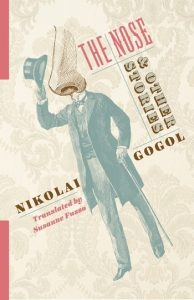 I have mixed feelings about the potential effects on remote work. On a personal level, I have loved spending more time with family these past months. And I have never subscribed to the antiquated idea that publishing must happen in New York—how could anyone, with presses like
I have mixed feelings about the potential effects on remote work. On a personal level, I have loved spending more time with family these past months. And I have never subscribed to the antiquated idea that publishing must happen in New York—how could anyone, with presses like 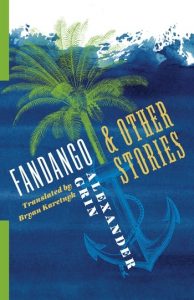
 fact that they so easily result in recordings means that their marketing potential lives on well after the event (see, for example,
fact that they so easily result in recordings means that their marketing potential lives on well after the event (see, for example, 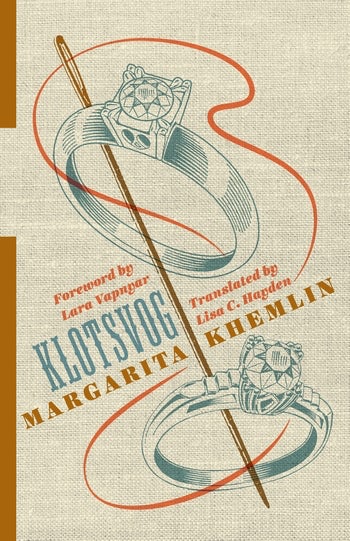 And finally, if you follow Russian fiction translated into English, which book(s) do you think stand a good chance of winning prizes for translated fiction – such as the Read Russia Prize (2020)?
And finally, if you follow Russian fiction translated into English, which book(s) do you think stand a good chance of winning prizes for translated fiction – such as the Read Russia Prize (2020)?
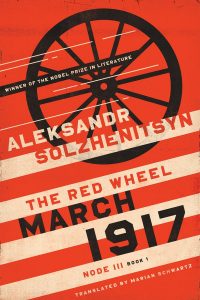 No matter how well established a translator might seem to be, the freelance life is only as viable as the next contract, and up until a month ago, as I turned in the fourth and final volume of Aleksandr Solzhenitsyn’s documentary novel
No matter how well established a translator might seem to be, the freelance life is only as viable as the next contract, and up until a month ago, as I turned in the fourth and final volume of Aleksandr Solzhenitsyn’s documentary novel 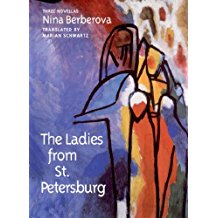 There is no danger that the English-speaking world will forget Dostoevsky, Tolstoy, or Chekhov, but there is a tremendous danger that they will never have a chance to read, let alone forget, much of post-Soviet and especially twenty-first century Russian literature, given that interest in contemporary Russian writing already seemed at an all-time low, despite the work of several excellent independent presses and new efforts such as the
There is no danger that the English-speaking world will forget Dostoevsky, Tolstoy, or Chekhov, but there is a tremendous danger that they will never have a chance to read, let alone forget, much of post-Soviet and especially twenty-first century Russian literature, given that interest in contemporary Russian writing already seemed at an all-time low, despite the work of several excellent independent presses and new efforts such as the  This week RusTrans spoke to Peter B. Kaufman, President and Executive Director of
This week RusTrans spoke to Peter B. Kaufman, President and Executive Director of 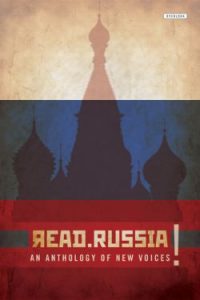 What do you think will be the knock-on effect from lockdown on translation publishing? Are there advantages as well as disadvantages for people in the creative industry?
What do you think will be the knock-on effect from lockdown on translation publishing? Are there advantages as well as disadvantages for people in the creative industry?

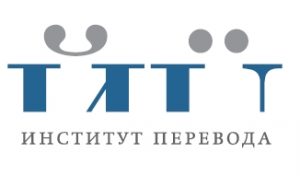 The Russian
The Russian

 optimistic, but this seems impossible to me.
optimistic, but this seems impossible to me. In today’s post we speak to Clem Cecil, outgoing Executive Director of
In today’s post we speak to Clem Cecil, outgoing Executive Director of  Clem Cecil has been Director of Pushkin House since April 2016, and from June 2020 is leaving to work on a book about Moscow. She is former Moscow correspondent for The Times, and co-founder of the Moscow Architecture Preservation Society. She has co-edited four books on the threatened architecture of Moscow, Samara and St Petersburg. From 2012 to 2016 she was the Director of SAVE Britain’s Heritage and SAVE Europe’s Heritage.
Clem Cecil has been Director of Pushkin House since April 2016, and from June 2020 is leaving to work on a book about Moscow. She is former Moscow correspondent for The Times, and co-founder of the Moscow Architecture Preservation Society. She has co-edited four books on the threatened architecture of Moscow, Samara and St Petersburg. From 2012 to 2016 she was the Director of SAVE Britain’s Heritage and SAVE Europe’s Heritage.


